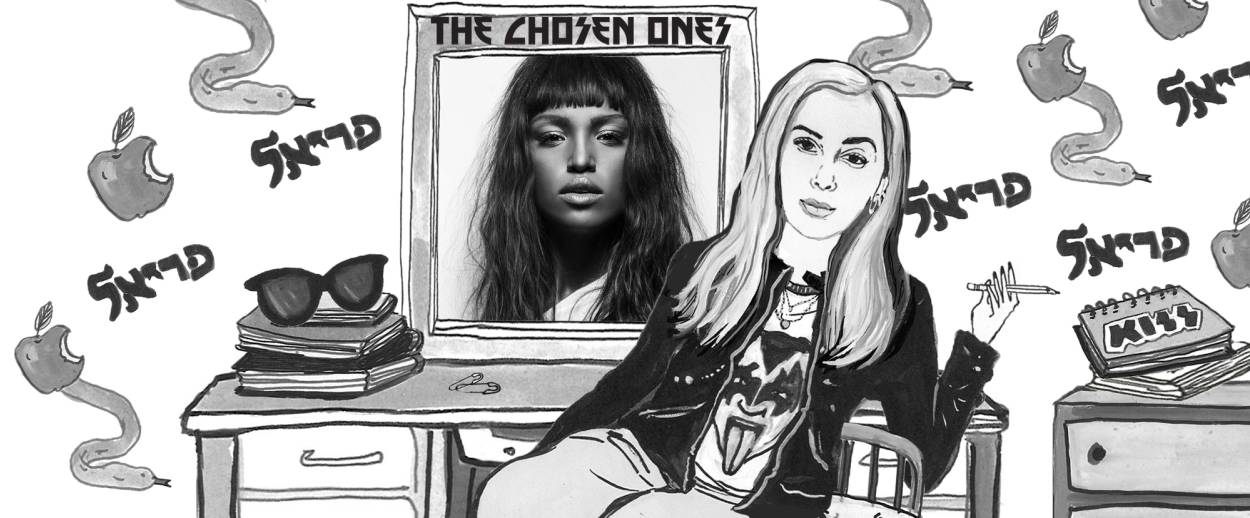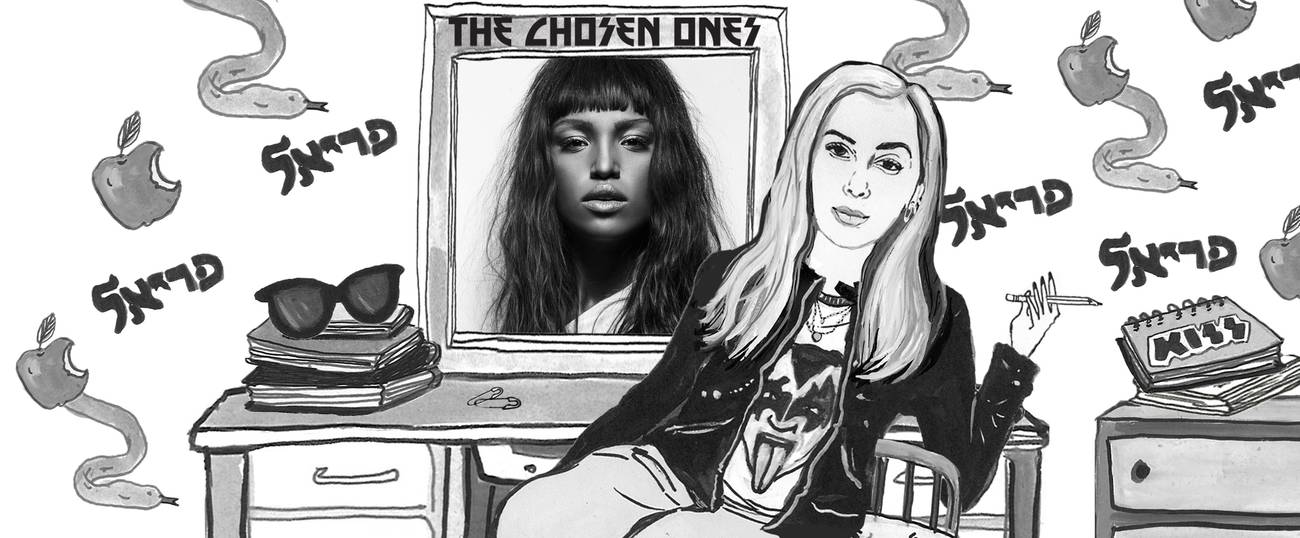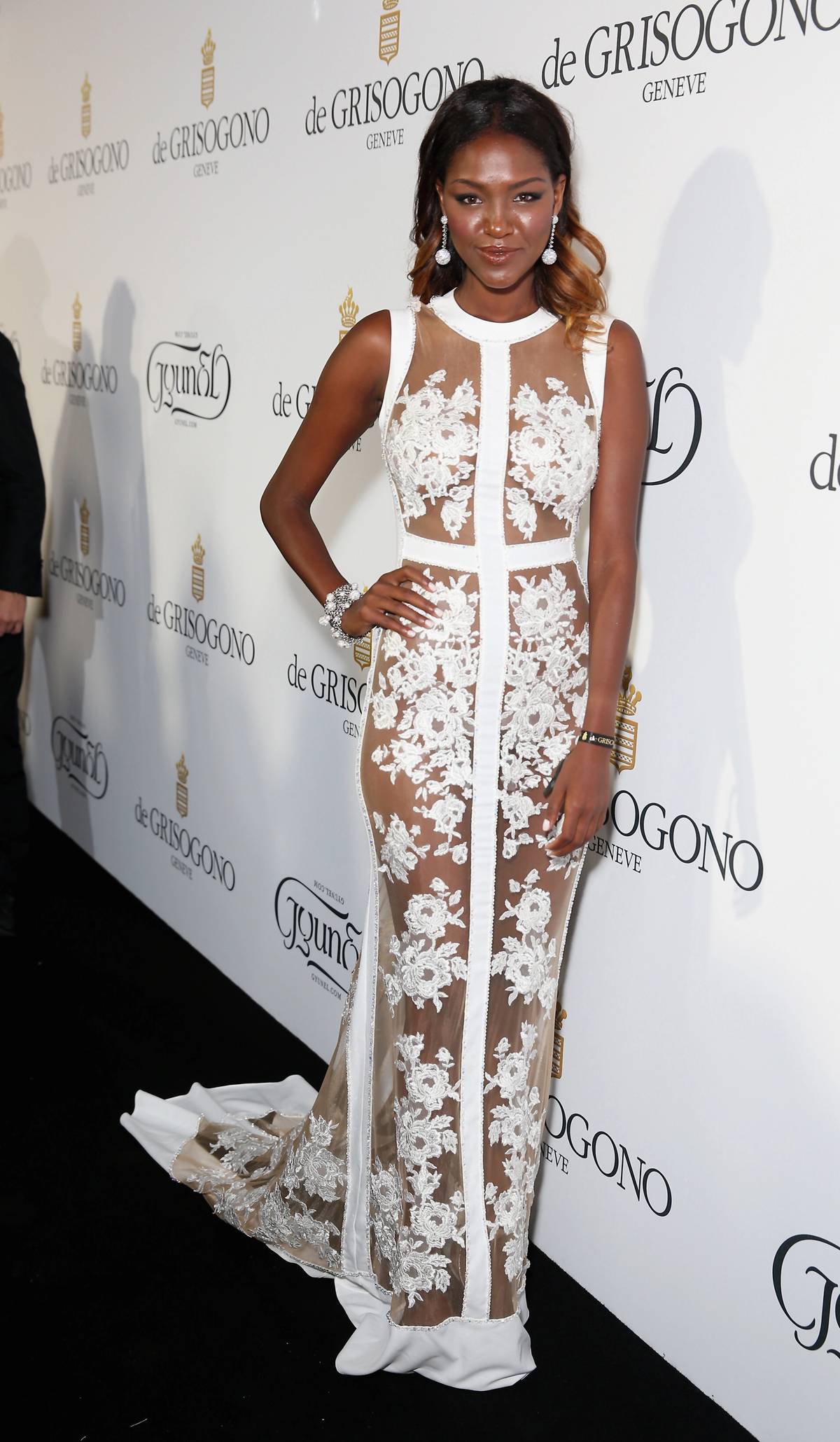The Chosen Ones: An Interview With Titi Aynaw
The first Ethiopian-born Jew to become Miss Israel on racism, paying it forward, and Israel’s power to unite different groups of people




The Chosen Ones is a weekly column by author and comedian Periel Aschenbrand, who interviews Jews doing fabulous things.
This piece started out very differently. It began with my hope that we were about to elect the first woman president, and then compare her historic accomplishment to the kinds of similar attributes I see in my guest, Titi Aynaw, who in 2013 became the first Ethiopian-born Jew to become Miss Israel. I described both women as a rays of hope, an example of not only what could be, but what can be—and what is—when we open our minds and embrace the fact that there is more that unites us than what divides us. But, I concede, progress doesn’t always move forward at first. Sometimes it also moves backwards; in fact, it often does.
I continue to have hope, mostly, because the other option is just too painful to conceive. James Baldwin said that we must continue to have hope because, “What can we tell the children?” He also said that “ignorance allied with power is the most ferocious enemy justice can have.” And so, in the darkest of times, I think that Titi Aynaw is a beacon of hope.
In many ways, even though she’s not American, she represents all the things that really do make America great—that if you fight hard enough, against all odds, you can achieve your dreams, you can do good. And you must. If an Ethiopian-born orphan can immigrate to Israel, learn Hebrew, excel in University, become a commander in the Israeli army, start a charity and a community art center for at-risk youth in Netanya, and become the first black Miss Israel, I have to be believe there is hope for our country, too.
It doesn’t hurt that she is jaw droppingly—actually, shockingly—gorgeous and smart and has exactly the kind of Israeli chutzpah one needs to get ahead. As I told her when I met her, the Israeli government should be paying her to do PR for them because you’re going to be hard pressed to find someone more charismatic, articulate, and qualified for the job. Her love for her country, her belief in the possibility of change, the power of her story, and her ability to awe people with her sheer presence are practically unprecedented. And while I’m not totally convinced she’s right, I sure as hell hope she is.
Titi’s anwers have been translated, in part, from Hebrew.
Periel Aschenbrand: Hello, Titi. How are you?
Titi: I’m good. I’m great. I love New York and I love to be here even though I’ve never been so busy in my life. Not even when I was in the army. This is my fifth time here, but this is the first time I’m really enjoying it. I’m doing a Jewish tour [in the U.S.] and I feel like I’m doing something really exciting. I’m going to universities and they don’t believe that someone like me really exists—Ethiopian, from Africa, a Jew, Miss Israel, a model—and I feel like I’m changing something.
PA: You’re like a unicorn.
TA: Yeah! They think I’m like a unicorn.
PA: You are like a unicorn.
TA: Thank you. They are so surprised to see something like me, that something like this exists in Israel, they think it’s crazy, so I feel like I am doing really good and positive work for Israel and this is the reason I feel like this is the best tour.
PA: Tell me about the tour.
TA: I’m here with JNF and MediaWatch, they brought me here. They help Israel a lot and one of the goals is to go and explain to Jewish and non-Jewish students about Israel from my point of view, and how Israel isn’t the place that they think it is. I think everyone is so surprised to see me because they think of Israel as a place of war so the point of this tour is to bring a different perspective.
PA: You’re doing PR.
TA: Yeah… I’m doing good PR!
PA: You are going PR! I always say Israel has the worst PR in the world but you’re doing great work. Tell me about Project Titi, the organization you started in Netanya.
TA: My idea is to take these kids who grew up where I grew up, in this really tough neighborhood, and provide them with things that they don’t have. Their parents work a lot and don’t make a lot of money so the kids need help. I want to take keep them out of trouble and give them a better start. Math, English, soccer, basketball… I want to start a Project Titi in every city in Israel.

PA: What do you need?
TA: Money, mostly, because we pay our teachers. I don’t use volunteers because I want people who are professional and who will really give the kids the attention they need.
PA: If there are people here would want to support Project Titi, what can they do?
TA: They go to the site and donate.
PA: How old are the kids?
TA: Eight to thirteen. And the kids are amazing. And I really need to keep them safe because they are really at risk. I’ve seen kids that age smoking and drinking. And they’re not bad kids, they just had a bad start.
PA: It’s wonderful. And how long have you been doing this?
TA: Three years. And I want to do more. I was a good student and an officer in the army but I chose this. And it wasn’t easy. It wasn’t easy at all. It’s not easy to rise up and try to follow your dreams.
PA: I think one of the reasons that people really relate to your story is that there are those problems here, as well. All the racism—
TA: Of course. But I wouldn’t compare the racism in the U.S. to Israel. First of all, we just arrived in Israel 30 years ago. It’s like the black Americans that belong [in the U.S.], but they don’t belong. In Israel it’s not the same thing, because we just arrived and while there is racism in Israel, I would never compare it to here. In Israel, you have the option to protest. There was a huge protest I recently attended and Israel is a democracy and I know that in 20 years there won’t be any racism because what happened to us also happened to the Russian and Moroccan immigrants. And the Ashkenazis did this to Sephardics, etc. This is the story. So we’re the last ones to arrive, but it’s not the same thing and you can’t compare what going on here, which is totally crazy. Here people are shooting each other. If that happened to me as a Jewish black person, it would never be allowed. No one would keep quiet.
PA: People aren’t quiet here either.
TA: So why is it happening?
PA: Because this country was founded on racism, for starters. And second, racism happens here in ways that are sometimes much less obvious—the number of times they’ll stop a black guy who is driving a car, or if they will stop for a taxi, or how they will treat me if I walk into a store versus how they will treat a black woman who walks into a store.
TA: It doesn’t make any sense that this is happening in 2016. I’m happy it’s not like that in Israel.
PA: Me too. But maybe I’m seeing it with different eyes.
TA: What do you see?
PA: I see that there is racism. And I don’t see that it’s very mixed.
TA: Of course it is! Do you think there is any other country in the world that is so small and so mixed where everyone is trying to get along. We all have the same culture. Six or seven different backgrounds, with the same culture—no shootings, people trying to be open with each other. I don’t know what’s going on here, but I can tell you that over there, it started out as something that wasn’t possible and now we’re getting good at it.
PA: That’s actually very interesting. You’re saying that being Jewish and the Israeli culture is the thing that ties everyone together?
TA: Yes. At the end of the day, yes. Even though the Russian culture isn’t the Ethiopian culture, there is something in the country that ties us all together.
PA: What’s the Ethiopian culture?
TA: Very modest. Very quiet.
PA: Quite different from the chutzpah of Israeli culture.
TA: Yes, but we’re learning. Think of where we will be in ten years. When my grandfather used to come home from work, we were supposed to greet him at the door and and wash his feet.
PA: That. Is. Insane. What a nightmare. Why don’t we do that for women?
TA: Nice, we should. But in the villages in Ethiopia, men used to work in the fields from the morning until the night and the women were working and cooking and taking care of kids.
PA: And what—that’s not work?
TA: Of course it is! That is extremely hard work! Any woman who is working and taking care of children should get have a special Wonder Woman pin.
PA: That would be real progress. You are certainly a symbol of real progress. It makes me proud to see and it also gives me hope. On a less serious note, what’s your favorite drink?
TA: Coffee, Americano.
PA: How do you eat your eggs?
TA: Scrambled.
PA: What’s your favorite Jewish Holiday?
TA: I think Rosh Hashanah.
PA: Did you have a bat mitzvah?
TA: Yes.
PA: What did you wear?
TA: I don’t remember, a dress. It was a very big group of us that went to the Kotel. You know, I don’t have parents, so it was for everyone who didn’t have parents or money.
PA: That’s very nice.
TA: It was really nice.
PA: What shampoo do you use?
TA: Kerastase.
PA: Gefilte fish or lox? This is an American thing; you don’t really eat gefilte fish in Israel.
PA: Ew! That is really disgusting.
PA: Five things in your bag right now?
TA: Sunglass case, passport, small bottle of perfume—Estee lauder, which I love, and I would love to model for them—body cream, what else? Business cards, charger, I think that’s it.
PA: Favorite pair of shoes?
TA: My orange and beige Valentino heel with studs. In general, I’m crazy for Valentino shoes.
The Chosen Ones: An Interview With Joy Ladin
Periel Aschenbrand, a comedian at heart, is the author of On My Kneesand The Only Bush I Trust Is My Own.